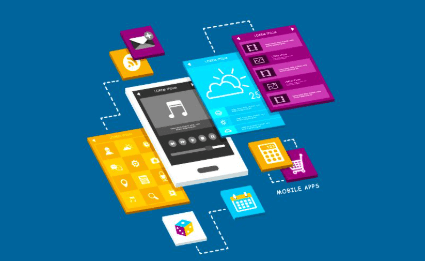Mobile App Development Services for User-Friendly Applications

In today’s digital landscape, the significance of user-friendly applications cannot be overstated, as they are crucial for enhancing user engagement and satisfaction. Mobile app development services are at the forefront of this evolution, employing various techniques and technologies to ensure seamless functionality and intuitive design. From responsive layouts to the integration of emerging innovations, these services focus on creating experiences that resonate with users. However, as the market continues to evolve, understanding the best practices and future trends in mobile app development becomes essential for businesses aiming to stay competitive. What might these trends reveal about the future of user interaction?
Importance of User Experience
In the realm of mobile app development, prioritizing user experience (UX) is paramount to ensuring the success and longevity of an application.
High user engagement stems from intuitive design and seamless functionality. Effective usability testing identifies pain points, enabling developers to refine interactions and enhance satisfaction.
Ultimately, prioritizing UX fosters a liberating experience that empowers users, ensuring they remain engaged and loyal to the application.
Key Development Services
A robust mobile app development process encompasses a variety of key services that cater to different aspects of the application lifecycle.
Essential services include cross platform solutions, allowing apps to function seamlessly across multiple devices, and backend integration, ensuring smooth data flow and connectivity.
Together, these services enhance functionality, optimize performance, and deliver a user-friendly experience, empowering developers to create innovative applications.
Best Practices for Design
Effective mobile app design hinges on adhering to established best practices that prioritize user experience and functionality.
Implementing responsive design ensures compatibility across devices, while intuitive navigation enhances user engagement.
Streamlined interfaces, clear calls-to-action, and consistent visual elements foster user confidence and satisfaction.
Future Trends in Mobile Apps
Emerging technologies and evolving user expectations are shaping the landscape of mobile app development.
Future trends will heavily feature artificial intelligence, enabling personalized experiences through predictive analytics and automation.
Meanwhile, augmented reality will redefine user engagement, allowing seamless interaction with digital overlays in real-world settings.
Together, these innovations will foster greater freedom and functionality, driving the next generation of user-friendly mobile applications.
Conclusion
In the rapidly evolving landscape of mobile app development, prioritizing user experience is not merely advantageous; it is essential. The convergence of innovative technologies and best practices will shape the future of applications, ensuring they remain engaging and functional across various platforms. As developers harness the power of artificial intelligence and augmented reality, the potential to transform user interactions expands. Ultimately, the quest for exceptional user experience stands as the cornerstone of successful mobile applications, forging deeper connections with users.





